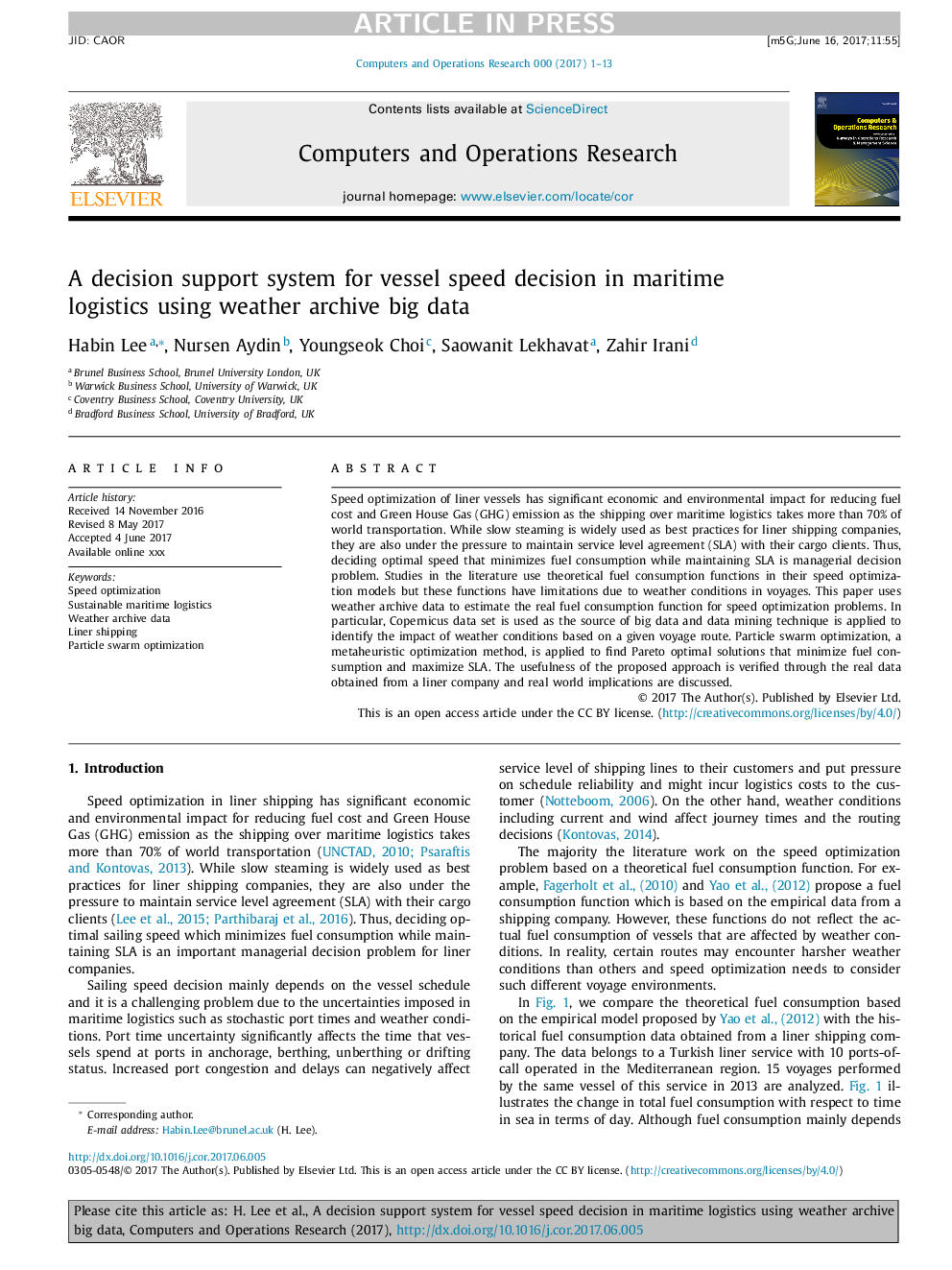| Article ID | Journal | Published Year | Pages | File Type |
|---|---|---|---|---|
| 6892562 | Computers & Operations Research | 2018 | 13 Pages |
Abstract
Speed optimization of liner vessels has significant economic and environmental impact for reducing fuel cost and Green House Gas (GHG) emission as the shipping over maritime logistics takes more than 70% of world transportation. While slow steaming is widely used as best practices for liner shipping companies, they are also under the pressure to maintain service level agreement (SLA) with their cargo clients. Thus, deciding optimal speed that minimizes fuel consumption while maintaining SLA is managerial decision problem. Studies in the literature use theoretical fuel consumption functions in their speed optimization models but these functions have limitations due to weather conditions in voyages. This paper uses weather archive data to estimate the real fuel consumption function for speed optimization problems. In particular, Copernicus data set is used as the source of big data and data mining technique is applied to identify the impact of weather conditions based on a given voyage route. Particle swarm optimization, a metaheuristic optimization method, is applied to find Pareto optimal solutions that minimize fuel consumption and maximize SLA. The usefulness of the proposed approach is verified through the real data obtained from a liner company and real world implications are discussed.
Related Topics
Physical Sciences and Engineering
Computer Science
Computer Science (General)
Authors
Habin Lee, Nursen Aydin, Youngseok Choi, Saowanit Lekhavat, Zahir Irani,
